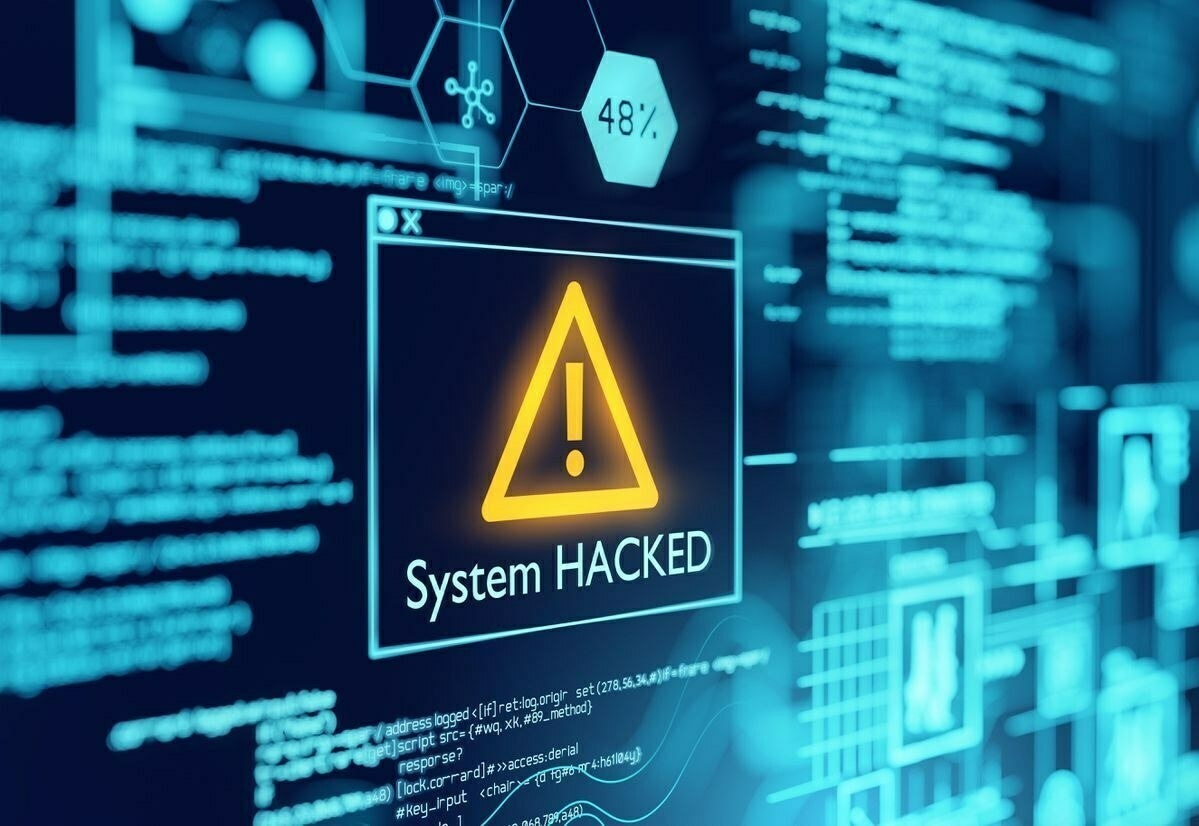You could believe that the only type of cybercrime about which you need to be concerned is hackers taking your financial data. Yet it might not be that easy. There are many more issues than just the most fundamental financial ones. Cybercrime is always evolving, and every year, new hazards surface.
You might be tempted to stop using the internet altogether when you learn and read about the variety of cybercrimes that exist. That’s probably too drastic.
Instead, it’s a good idea to understand cybercrime, since this might be the initial step in assisting with data and/or your protection. Adopting some simple measures and knowing who to contact when you witness others involved in illicit activity online are also crucial considerations.
You might be interested in finding out how to stop cybercrime, but the truth is that you can’t. However, you may help protect yourself from it by taking precautions by obtaining services or hiring a cybercrime lawyer from legal aid lawyers at Mavens & Co.
Cybercrime: What is it?

Any crime that occurs largely or exclusively online is considered a cybercrime. Targeting computer networks or devices is a common practice for cybercriminals. Identity theft and security breaches are both types of cybercrime.
Other cybercrimes include sexual abuse of children, cyber harassment, intimidation, and bullying. Terrorists collaborate online, bringing criminal activity and terrorism into the digital realm.
How To Avoid Being A Victim Of Cybercrime
Anybody who uses the internet should take some simple safety measures. These 11 suggestions can help you defend yourself against the various online crimes that are currently being committed.
- Make use of a complete internet security package
Consider using reputable security software, which offers comprehensive protection for your devices, online privacy, and identity as well as aids in safeguarding your personal and financial data online.
- Use strong passcodes
Avoid using the same passwords across many websites, and change them frequently. Make them challenging. That entails utilizing a minimum of 10 different letters, numbers, and symbols. By employing a password management application, you can maintain your login information safe.
- Continue to upgrade your software
With your operating systems and internet security software, this is extremely crucial. Cybercriminals typically use well-known breaches, or flaws, in your software to gain entry to your system. You can lessen the likelihood that you’ll become a target of cybercrime by correcting those bugs and exploits.
- Control your settings on social media
Keep your private and sensitive information secure.To protect yourself against social engineering cybercriminals who may frequently access your personal details with just a few observations, it is best to withhold as little information as possible from the public. By posting the name of your pet or revealing your mother’s maiden name, for example, you risk giving away the solutions to two often asked security questions.
- Make your home network stronger
The best course of action is to start with a private virtual network and an encrypted communications password. All outgoing traffic from your devices is encrypted using a VPN once it reaches its destination. Only after successfully penetrating your connection line would cybercriminals be capable of seeing encrypted data. Use a VPN whenever you access a public Wi-Fi network, regardless of whether it’s a restaurant, airport, cafe, or university.
- Disclose to your kids what the internet is.
You don’t need to block communication channels to teach your children what is and isn’t appropriate online behavior. Assure them that they can contact you if they come across any form of online abuse, stalking, or harassment.
- Get informed about significant security breaches
If you conduct business with a merchant or have an account on a website that’s been touched by a security breach, find out what information the hackers acquired and change your password immediately.
- Take precautions to help safeguard yourself against identity theft
Identity theft happens when someone illegally gets your personal information through fraud or deception, usually intending to make money. How? For example, a thief may use your mail to obtain account information, or you can fall for online scams that trick you into giving out personal data. Because of this, it’s crucial to protect your personal information. While connecting to a public Wi-Fi network, a VPN, or a private internet connection, can help to secure the data you transmit and receive online.
- Recognize that identity theft can occur anywhere.
Knowing how to protect your identity is a good notion even when you’re traveling. There are many measures you can take to stop thieves from stealing your personal information while you’re driving. They include not sharing your vacation plans on social media and utilizing a VPN when using the Wi-Fi at your hotel to access the internet.
- Watch the children.
Along with discussing the internet with your children, you should also teach them how to avoid identity theft. Identity thieves often target youngsters because their Social Security number and credit history frequently reflect a clean slate. By being cautious while exposing your child’s personal information, you can prevent identity theft. It’s a good idea to be aware of the signs that could point to a breach in your child’s identification.
- Be aware of what to do in case of victimization.
You must notify the local police and, in some situations, the FBI and the Federal Trade Commission if you think you are a victim of a cybercrime. Even though the crime seems little, this is nonetheless significant. Your information could aid law enforcement in their inquiries or prevent crooks from exploiting other people in the future. If you believe your identity has been stolen by online thieves. These are some of the actions you ought to think about.
- Make contact with the businesses and institutions where you are aware of fraud.
- Place fraud alerts and get your credit reports.
- Report identity theft to the FTC.
Also for a clear and proper consultation and support you can contact Mavens & Co., specialists in law and legal consultancy.

FAQs
- What if I think I’ve already been a victim of cybercrime in Pakistan?
Here’s what to do:
* **Report the crime to FIA (Federal Investigation Agency).** FIA's Cybercrime Wing handles online crimes. You can register a complaint online at [https://fia.gov.pk/ccw](https://fia.gov.pk/ccw) or visit your nearest FIA office.
* **Change your passwords.** Update passwords for email, bank accounts, social media, and any compromised online accounts.
* **Monitor your accounts.** Regularly check bank statements for unauthorized transactions and request a credit report from Credit Reference Bureau (CRB) to look for suspicious activity.
* **Consider a lawyer specializing in cybercrime.** They can guide you on legal options for recovering damages or dealing with identity theft. The Pakistan Bar Council ([http://pakistanbarcouncil.org/](http://pakistanbarcouncil.org/)) can help you find a lawyer.
- What is a VPN and how can it help in Pakistan?
A Virtual Private Network (VPN) encrypts your internet traffic and routes it through a remote server. This can be beneficial in Pakistan for:
* **Enhanced security on public Wi-Fi:** Public Wi-Fi is often unsecured, and a VPN protects your data from snooping.
* **Accessing geo-restricted content:** Some websites might be blocked in Pakistan. A VPN can help access them (**Note:** This may violate terms of service for some platforms).
- How can I keep my children safe online in Pakistan?
Here are some tips:
* **Open communication:** Discuss online safety with your children. Explain cybercrime risks and responsible online behavior.
* **Parental controls:** Utilize parental controls offered by internet service providers (ISPs) in Pakistan to filter inappropriate content.
* **PTA's helpline:** Report suspicious online activity targeting children to PTA's helpline at 0800-11111.
- What are the signs of identity theft in Pakistan?
These signs might indicate identity theft:
* **Unfamiliar charges:** Unrecognized transactions on bank statements or credit card bills.
* **Debt collector calls:** Calls about debts you don't recognize.
* **Loan rejections:** Loan applications denied without clear explanation.
* **Tax return notice:** Receiving an IRS notice for a tax return filed in your name (though the IRS doesn't operate in Pakistan, a similar notification from the Federal Board of Revenue (FBR) is possible).
If you suspect identity theft, contact the FIA Cybercrime Wing as mentioned earlier.
- I’m not tech-savvy. Can I still protect myself in Pakistan?
Absolutely! Here are some simple steps:
* **Strong passwords:** Use strong, unique passwords and change them regularly. Password managers can help.
* **Information sharing:** Be cautious about sharing personal information online, especially with strangers.
* **Suspicious links:** Don't click on links or open attachments in emails from unknown senders.
* **Software updates:** Keep your operating system, web browser, and security software updated.
By following these tips, you can significantly improve your online security in Pakistan.
Final Thoughts
In a sense, combating cybercrime lawyers is everyone’s concern. Consider your responsibility to contribute to the battle against cybercrime as a duty.
Most people can achieve this by taking a few straightforward, sensible precautions to protect themselves and their families. Additionally, it entails promptly informing the appropriate authorities of cybercrimes.

